THE BREAKFAST CLUB. The ultimate cult classic. Masterpiece!
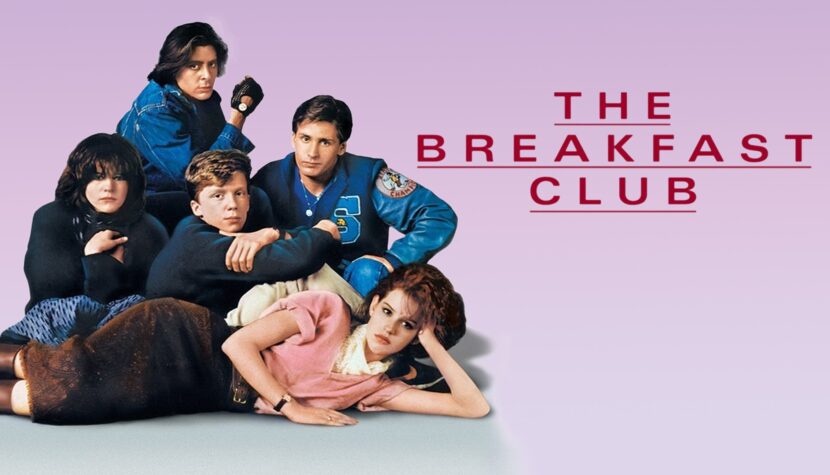
As a punishment, they must spend their Saturday at school and write an essay titled Who am I?
Thus begins one of the most extraordinary movies I’ve ever seen – John Hughes‘ The Breakfast Club.

I remember watching it for the first time when I was about the same age as the main characters, and I recall being deeply impressed, although I couldn’t quite articulate why. A rewatch many years later made me realize the authenticity of this film and how brilliantly observant the writer and director was. This film contains no ounce of falseness; it doesn’t try to exaggerate anything or force itself into being a super teen movie or exude that kind of humor. Instead, it simply doesn’t pretend. It shows the difficulty of being a teenager, a person susceptible to influences from family, friends, and teachers. It reminds us of the struggles of that period, as it’s a time when we’re no longer children, yet not quite adults.
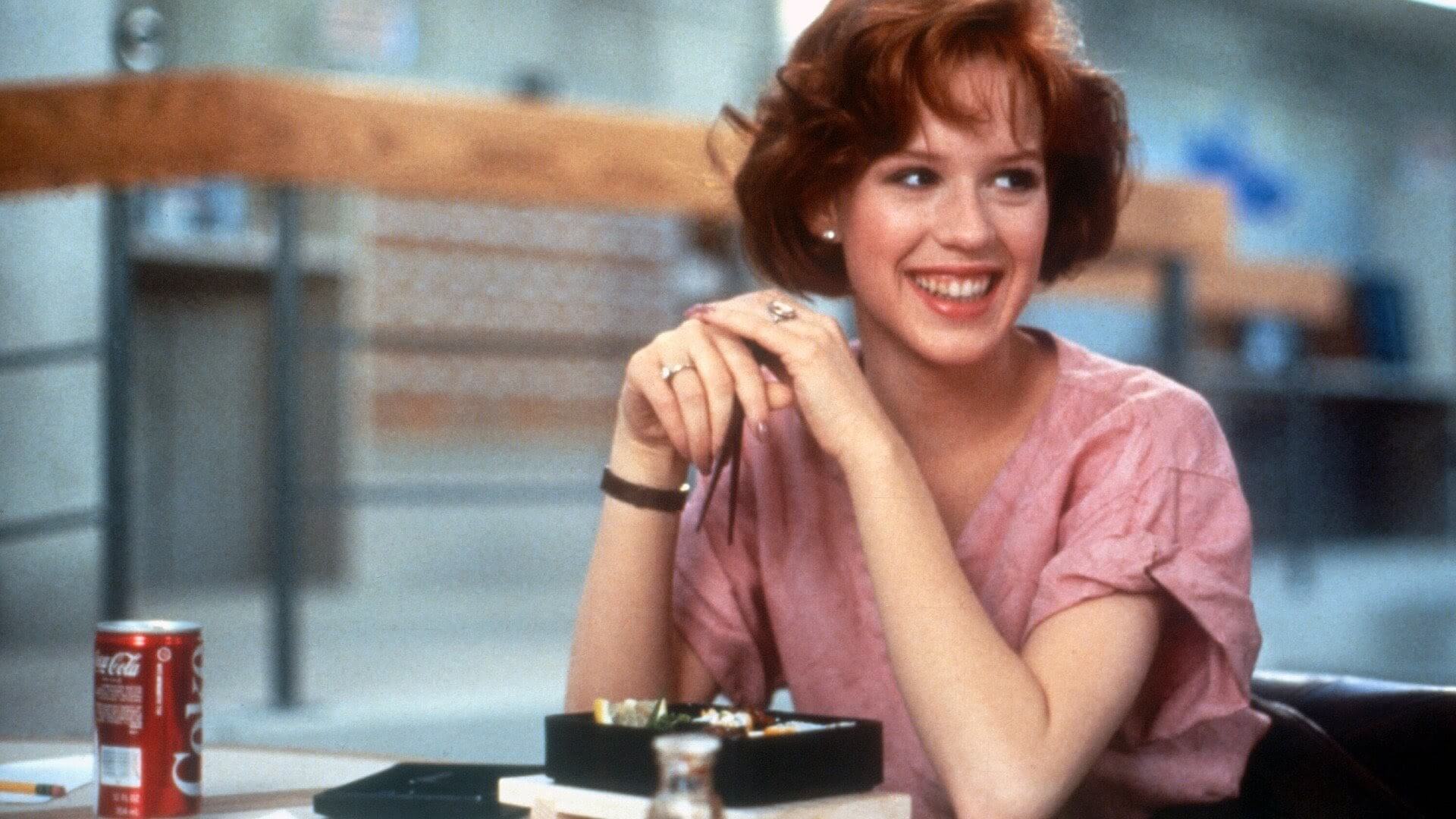
The main characters of The Breakfast Club, seemingly different with various social statuses and approaches to life, despite initial clashes, begin to see a thread of understanding between them. While they might not have noticed it in their normal environment among friends and peers, here, suspended in the hermetic world of a school classroom and reliant only on each other, they start to realize how much they have in common. When needed, they can also be supportive, covering for each other with the teacher and opposing his commands. Although initially unsure how to answer the question Who am I?, they all know perfectly well who they don’t want to be – replicas of their parents.
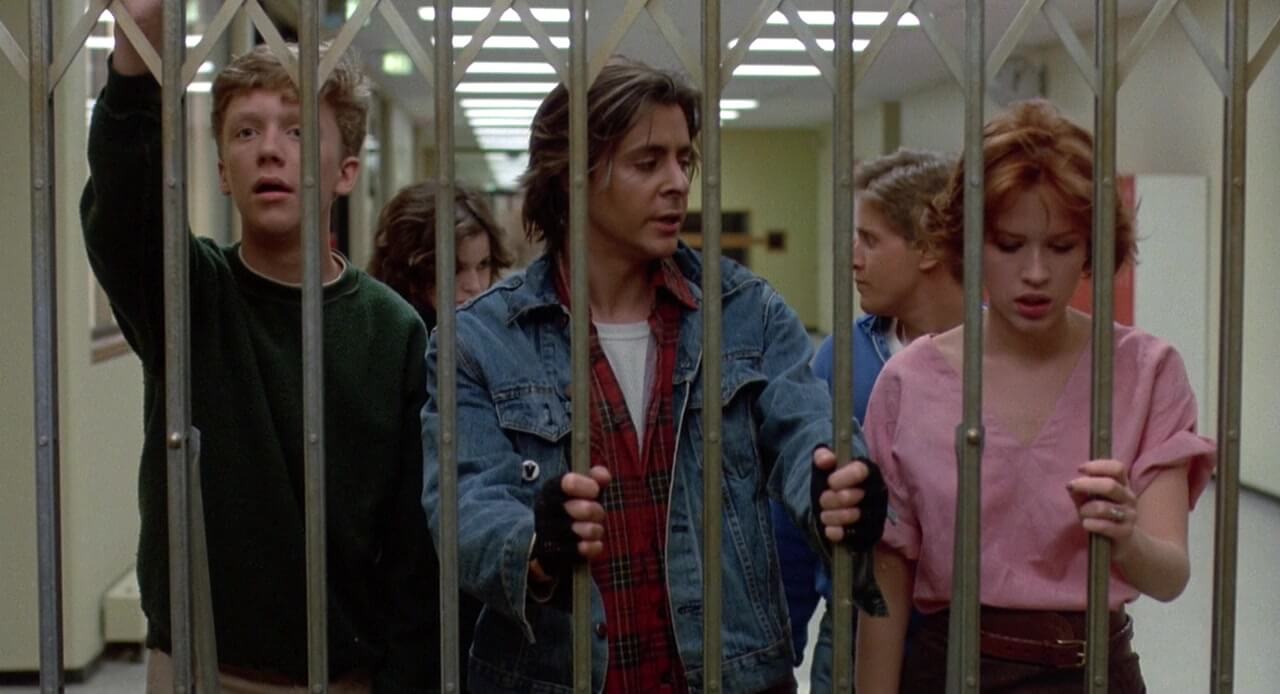
The actors who played the main characters of The Breakfast Club fit into their roles perfectly. Judd Nelson as Bender made a huge impression on me. The rebel who acts as if he doesn’t care about anything or anyone. He can antagonize anyone and everyone, yet beneath all that exterior and shell he’s built around himself, he’s incredibly intelligent and sharp as an observer and commentator. His judgments and opinions are sharp but remarkably accurate. Emilio Estevez as the confident athlete, a member of the wrestling team whose whole life is dedicated to sports, and Ally Sheedy as the outcast Allison, also shine. Her behavior makes you almost believe that there’s something genuinely wrong with her. We’re never quite sure when she’s lying and when she’s telling the truth; at times, she genuinely seems unhinged. Molly Ringwald as Claire and Anthony Michael Hall as Brian also create compelling characters, though compared to their peers, they might come off slightly less vivid, though this could be colored by my personal biases.
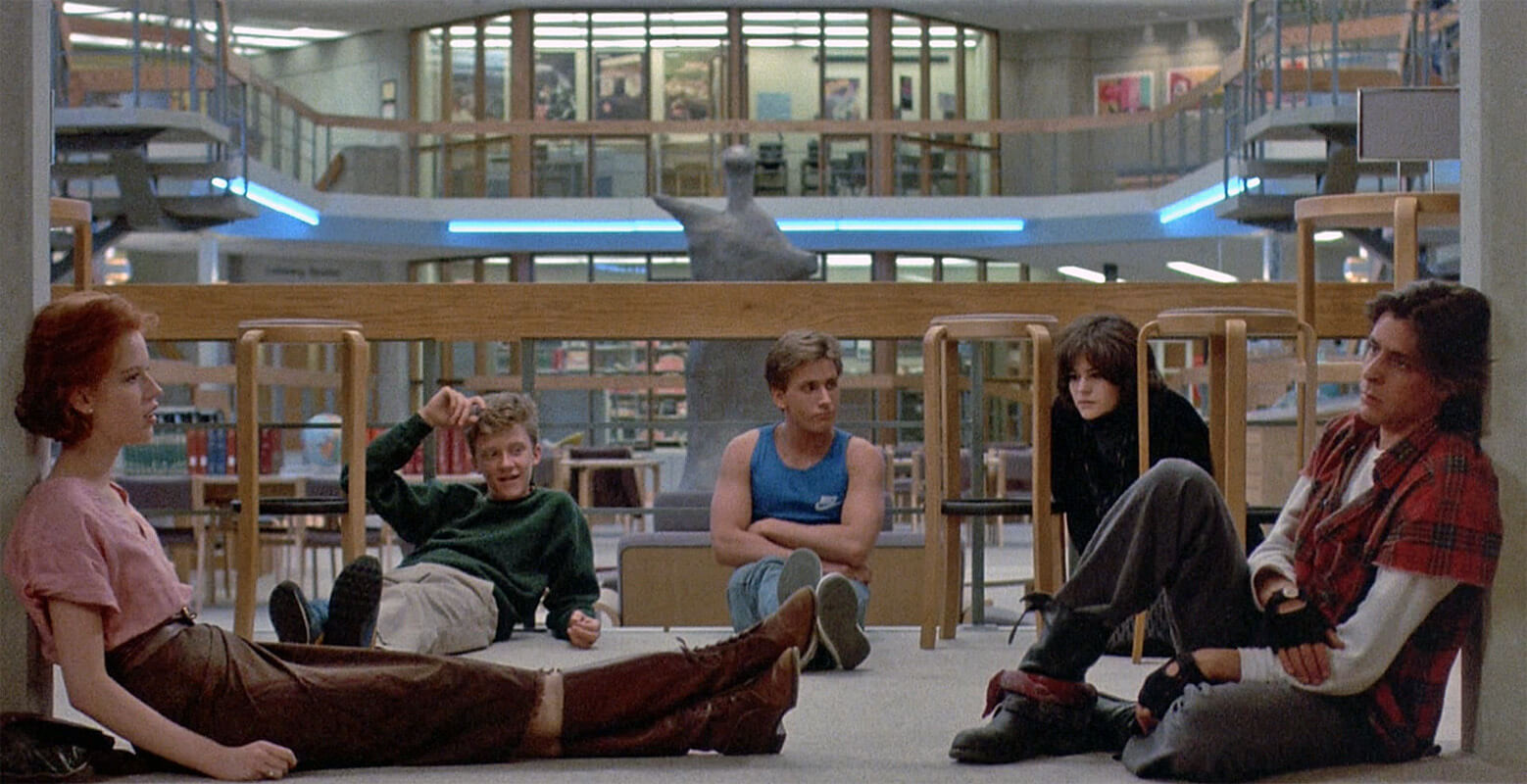
The fact remains that this young ensemble delivered amazing performances, culminating in the scene where they confess their sins. Worth noting – the scene was improvised. These few minutes show how well the actors embody their roles and how authentic they can be. It’s a pity they’re somewhat forgotten now. Apart from the aforementioned five, Hughes introduces two more characters into the film: Principal Vernon and the janitor Carl. They’re the only adults who contribute to the plot and offer a different perspective.
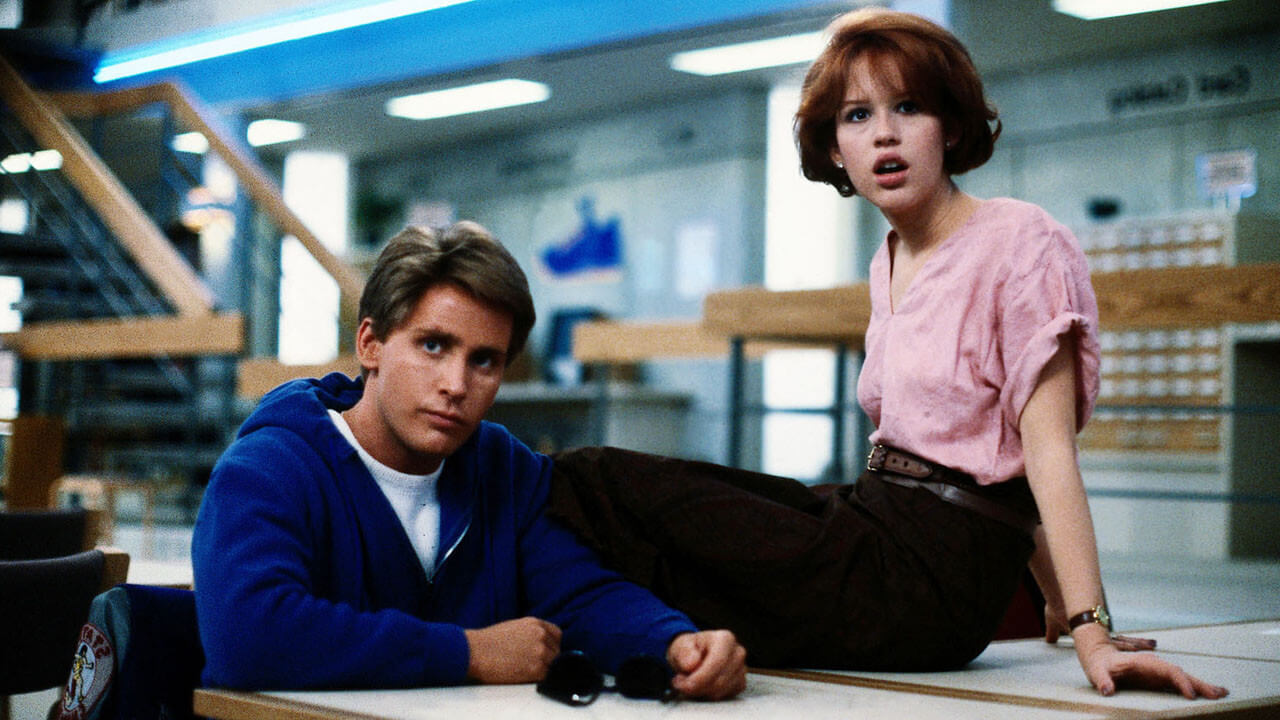
Music plays a significant role in The Breakfast Club, evoking the ’80s and immersing us in that era. It complements the visuals perfectly, enhancing several scenes, with the best example being when they all start dancing, each in their own quirky way. The main theme, the cornerstone of the film, is the song Don’t You (Forget About Me) by Simple Minds, which – ever since I first saw the writer’s work Home Alone – I associate solely with a group of high schoolers in a Chicago suburb.
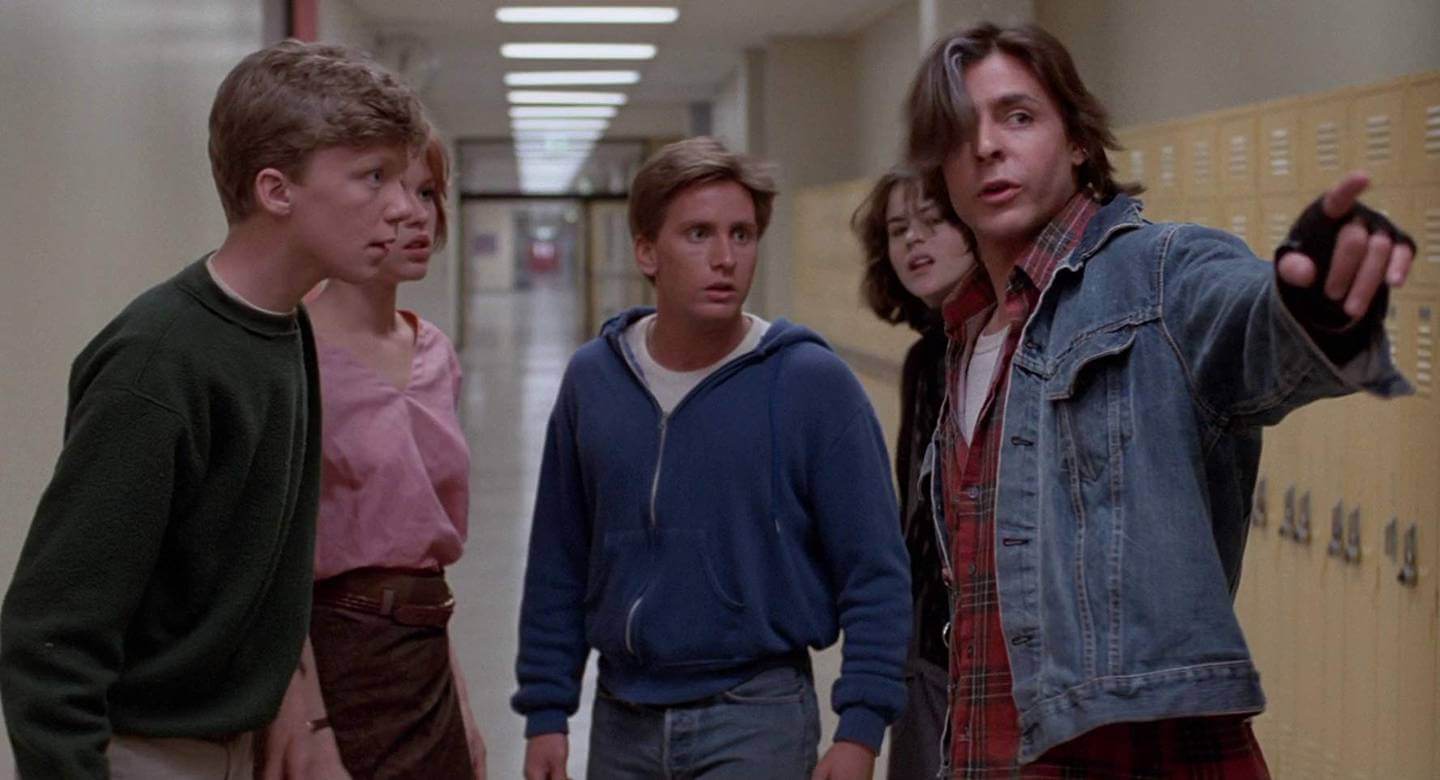
It’s astonishing how John Hughes, with the help of these five young people and one room, managed to create a captivating film from start to finish, completely different from today’s “teen movies.” A blend of drama and comedy, seasoned with excellent acting and a catchy soundtrack, made The Breakfast Club a classic. A film that everyone should see, both teenagers and adults, who will reminisce about their youth and realize how much they’ve changed since high school and how life has tested their plans and dreams. A wonderful film that asks tough questions and grapples with the challenges of growing up. A must-watch for everyone, regardless of age, subculture, or social status.
Words by Szymon Pajdak.

